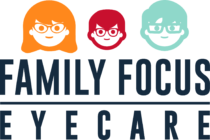A trip to the optometrist’s office can be an anxiety-inducing experience for many people, but for children with autism, the challenges can be more upsetting. The sensory sensitivity and unique behavioral variations associated with autism spectrum disorder (ASD) can make eye exams particularly challenging.
Understanding Behavioral Variations
Children with autism often exhibit behavioral variations that can significantly impact their response to eye exams. These may include:
- Gaze aversion
- Abnormal social interaction
- A desire to be left alone
- Repetitive behaviors
- Highly fixated interests
- Resistance to changing routines.
Recognizing and respecting these boundaries is essential for establishing trust and rapport to lay the groundwork for a successful examination.
Vision Exam Strategies
Optometrists often rely on a technique called retinoscopy, especially for those who don’t respond well or talk much. This method uses the natural reflection of light in the eye to help identify potential vision issues, and the best part is, the patient doesn’t need to communicate.
To make the experience more interesting for kids who struggle to focus, optometrists might use loose lenses, different targets, or videos. Involving parents or guardians in the process can also help children feel more secure.
Accommodative & Binocular Deficiencies for Children with Autism
In the realm of pediatric optometry, it’s crucial to recognize and address various visual challenges that children with autism may encounter. During eye exams, it is essential to assess these areas, as detecting these issues allows for tailored interventions.
The vision challenges associated with autism include:
- Accommodative deficiencies that hinder the eyes’ ability to focus effectively at different distances.
- Binocular deficiencies that affect the coordination of both eyes.
- Oculomotor dysfunctions that affect precise eye movements.
Additionally, visual processing delays may impede the brain’s interpretation of visual information.
By understanding and addressing these nuances, optometrists can significantly contribute to the overall well-being of children with autism. If concerns about any of these issues arise, further testing or referrals may be recommended to provide fully comprehensive care for your child’s visual health.
Ocular Health Exam Strategies
An ocular health assessment can pose additional challenges for children with autism, as some equipment may appear intimidating. To help alleviate anxiety and provide reassurance, we may recommend demonstrating how the equipment is used on a child’s guardian first. If bright lights are causing discomfort, shining a light on a child’s hand can also serve as a less intrusive alternative.
Dividing a full eye exam into parts, when necessary, can also help children with autism feel less overwhelmed and provide opportunities for building trust between you, your child, and your optometrist.
Autism Spectrum Disorder & Vision Findings
Children with ASD often have an increased prevalence of vision impairments, including strabismus, oculomotor deficits (eye movement dysfunction), and poor contrast sensitivity. These conditions can lead to global processing challenges, such as slower analysis of motion, poor facial recognition, and delayed speech, so addressing them during an optometric exam is often crucial for supporting your child.
At Family Focus Eyecare, we are attentive to discerning underlying visual perception dysfunctions, including visual discrimination, figure-ground perception, and visual-spatial discernment.
In the realm of eye care for children with autism, a patient-centered and adaptable approach is paramount. This is one area where our optometrists at Family Focus Eyecare excel.
We are ready to help create a positive and supportive eye care environment for everyone by recognizing, respecting, and adapting to the unique characteristics and challenges associated with autism and other conditions that affect children.


